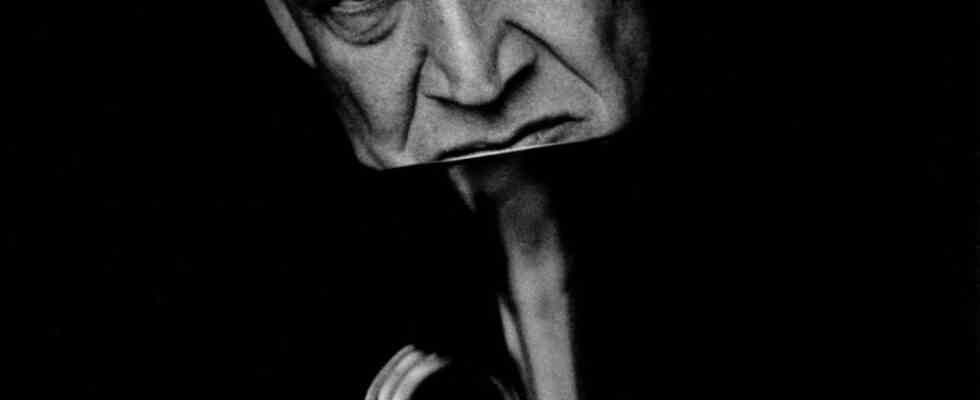Not so long ago, Johannes Faber was a celebrity in Munich, both as a musician and as an organizer and moderator. Until he moved to Italy ten years ago. But now, on his 70th birthday, which he celebrates on November 7th, the man with the distinctive trumpet tone, the no less distinctive voice and the even more distinctive face, which is not covered by any hair, is remembering himself in his old homeland . He wrote an ambitious project for his birthday and recorded it in Munich this year: the album “Blue Micol” with 16 titles for a double quartet, half in the classic jazz instrumentation, the other half with strings. He will present it live three times in November.
Several circles close with “Blue Micol”. Old jazz preferences are combined with Italian and classical influences, “because I’ve written more and more for classical orchestras there in recent years,” reports Faber. And it is not only a homecoming to Munich, but also the resurgence of his quartet with Jan Eschke on piano, Thomas Stabenow on bass and Matthias Gmelin on drums. Faber was born in Munich and found his way to music here early on: “My father Joachim was a composer, so music was instilled in me with my father’s milk, so to speak.” He began with the recorder and piano – which he also masters excellently, sometimes plays at performances and on which he also composes – but his enthusiasm for the brass bands in the English Garden was decisive. The trumpets in particular fascinated him so much that he built his first horns himself using hoses, funnels and mouthpieces from the flea market. Consequently, he took up classical trumpet studies at the Munich Richard Strauss Conservatory. In order to switch to jazz, which he found more exciting, he first went to Graz and then to the Berklee College of Music in Boston.
The years with the NDR Big Band were his heyday as a musician
On his return he soon played with the greats of the scene from Mal Waldron to Dusko Goykovich. A close partnership developed with Thomas Stabenow, on whose label he released several albums. but also for Konstantin Wecker he played later, versatile as he is. And yet he quickly got lost in his hometown, as early as 1980. He then moved to Stuttgart as a soloist and composer in Erwin Lehn’s Südfunk Dance Orchestra. He stayed for ten years and then joined the NDR Big Band for six years, combined with a professorship at the Hamburg University of Music and Theater. Those big band years were his heyday as a musician. He played with international stars like Chaka Khan, Anthony Jackson or Dado Moroni in Wolfgang Dauner’s European supergroup United Jazz & Rock Ensemble and at Peter Herbolzheimers Rhythm Combination and Brass. He was also successful with his own band, his consortium, Outstanding cast with Billy Cobham, David King, Christof Lauer and Jörg Reiter.
A fractured skull then meant a caesura. “I was out of traffic for two years, retired to a garret and just played the piano,” he says. It was then, in the broadest sense of the word, that his family ensured an unexpected, Munich turn in his career. His brother-in-law, the Austrian actor Klaus Weinzierl, had been dealing with the poacher stuff of the Bavarian Hiasls for years and convinced Faber’s mother – a writer who had also written children’s books – to write the text for his play. And Faber himself for the music. What’s more, in the end Weinzierl didn’t give up until he had persuaded Faber to take on the lead role as well. So Faber made his debut as an actor at the Gärtnerplatztheater in 1998, playing the main and title role in “Hias”. In the following season, the role of Sarastro in Mozart’s Magic Flute followed. “I also used this time to go to the neighboring Voglers very often, get on there and start playing the trumpet again.”
At 70 and in his adopted homeland of Italy, Johannes Faber has found more peace.
(Photo: Hans Visser)
The director of the Gärtnerplatz at the time, Klaus Schulz, finally put Faber’s talents together and commissioned him with a series of concerts called “Jazz im Gärtnerplatz”. Faber opened it on January 11, 2000 with his newly launched consortium, 65 evenings with stars like Toots Thielemanns, Herbie Hancock, Regina Carter or Lynne Arriale, but also with many young talents followed in the following twelve years. Faber always introduced the concerts, moderated and played one or two numbers at the end. Always sold out in the first few years, the series developed cult status until the enthusiasm gradually ebbed away – also because other temples to classical music followed suit. In 2012, shortly before the house was closed for years anyway for renovation, it was over. A professorship at the Nicolo Paganini Conservatory in Genoa came at the right time, and Faber found more leisure in Italy. But now for the 70th, the “old martial artist”, as he calls himself, is coming back again.
Johannes Faber & Mesconia Quartet, Tuesday, November 15, 8 p.m., TamS, Haimhauserstr. 13a; Johannes Faber & The Quartet, Thursday, Nov. 17, 8:30 p.m., Birdland, Neuburg an der Donau; Fri, Nov 18, 8 p.m., PelkovenschlösslSt.-Martins-Platz 2

